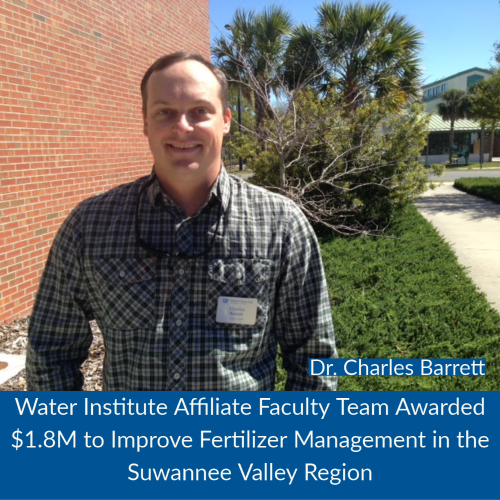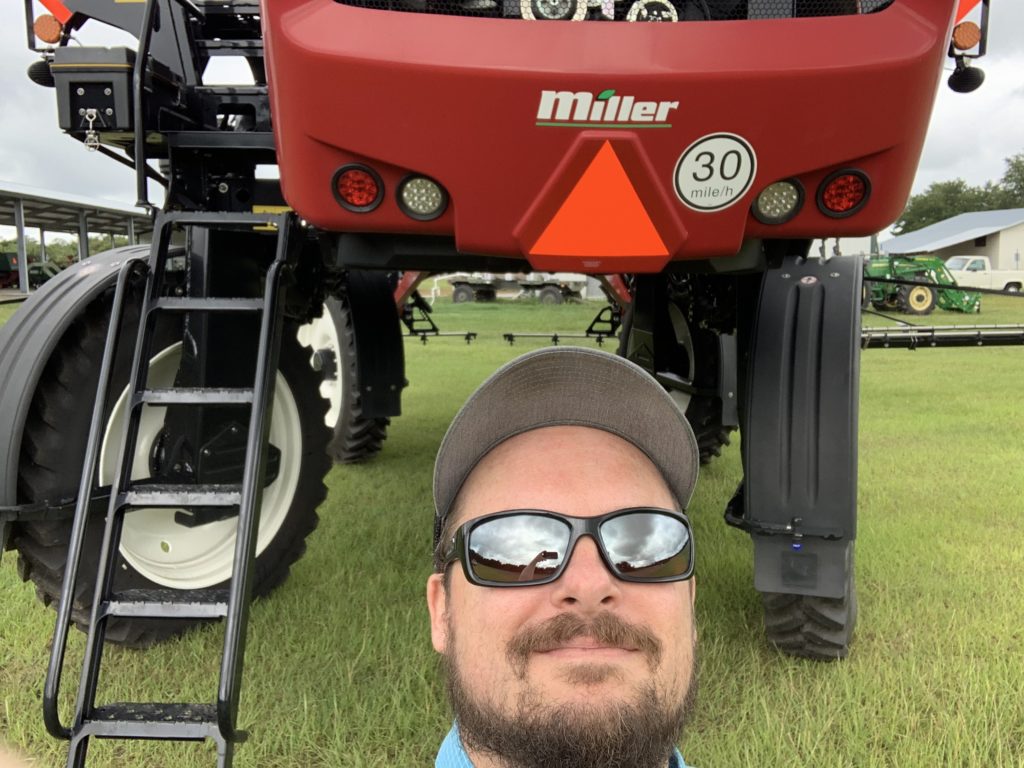Led by Dr. Charles Barrett and supported by the Suwannee River Partnership, the 5-year project aims to encourage farmers in the Suwannee Valley to adopt new fertilizer management practices that reduce nutrient leaching and protect water quality in the region. Using corn as a case study, the project will conduct on-farm demonstrations that reduce the amount of fertilizer applied by switching from broadcast application to banding fertilizer in crop rows. The project will also assess the costs associated with such change, seeking a cost-effective alternative that encourages adoption.
Dr. Barrett is a Water Institute Affiliate Faculty and UF/IFAS Extension regional specialized agent for water resources based in the UF/IFAS North Florida Research and Education Center – Suwannee Valley. He is a team member of the Water Institute coordinated Floridian Aquifer Collaborative Engagement for Sustainability (FACETS) project, where he conducts innovative agricultural Best Management Practice (BMP) research and demonstration projects and delivers training programs for diverse stakeholders to bring about changes in agricultural production systems.
“I see this project as a synergistic project with FACETS because we are demonstrating a management system that reduces nutrient leaching potential,” said Dr. Barrett. “We will be hiring two employees to run the project and we are purchasing a high-clearance sprayer, a semi-truck and trailer, and other equipment. It’s a huge undertaking but this is what it will take to help our corn farmers adopt the technology,” he continued.
Co-investigators of the project include FACETS project team members Robert Hochmuth, Dr. Kevin Athearn and Joel Love, as well as well as De Broughton, all faculty and staff of the UF/IFAS North Florida Research and Education Center – Suwannee Valley. David Royal from The Nature Conservancy and Andy Jackson with Suwannee County Conservation District will also collaborate on the project.



